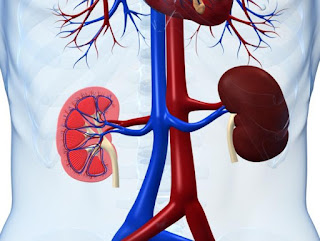Nephritis, nephrotic syndrome, and nephrosis are all conditions, disorders, or diseases of the kidneys.
Chronic kidney disease (CKD) is a condition in which the kidneys are damaged and cannot filter blood as well as healthy kidneys. Because of this, waste from the blood remains in the body and may cause other health problems.
An estimated 10 percent of adults in the U.S. - more than 20 million people - are thought to have CKD to some degree. The chances of developing CKD increase with age, especially after the age of 50, and the condition is most common among adults older than 70.
Awareness and understanding about kidney disease is critically low, with an estimated 26 million Americans having chronic kidney disease. Among those with severe (stage 4) kidney disease, fewer than half realize that they have damaged kidneys.
Symptoms:
The early symptoms of chronic kidney disease are the same as for many other illnesses. These symptoms may be the only sign of a problem in the early stages.
Symptoms may include:
- Appetite loss
- General ill feeling and fatigue
- Headaches
- Itching (pruritus) and dry skin
- Nausea
- Weight loss without trying to lose weight
Symptoms that may occur when kidney function has become severe include:
- Abnormally dark or light skin
- Bone pain
- Drowsiness or problems concentrating or thinking
- Numbness or swelling in the hands and feet
- Muscle twitching or cramps
- Breath odor
- Easy bruising, or blood in the stool
- Excessive thirst
- Frequent hiccups
- Problems with sexual function
- Menstrual periods stop (amenorrhea)
- Shortness of breath
- Sleep problems
- Vomiting, often in the morning
Can kidney disease be prevented?
To reduce your risk of chronic kidney disease:
- Avoid excessive intake of alcohol
- Follow instructions on OTC medications, especially when using non-prescription pain relievers
- Maintain a healthy weight
- Quit smoking
- Manage medical conditions with the help of a doctor or health care professional.






0 Comments